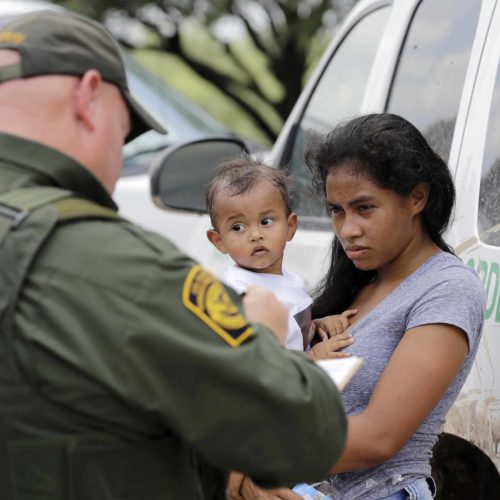Introduction
We’re continuing our Q&A series on journalists who published powerful stories. In 2017, Lomi Kriel of the Houston Chronicle started to look into the strain of illegal immigration on the Texas court system. That’s when she first heard disturbing accounts of families being separated at the U.S.-Mexico border.
Border courts often have specific judges to handle such cases. Public defenders have just a few minutes with each offender before they typically are charged and plead guilty in a mass court proceeding that plays out in about an hour. At the time, the Trump administration was expanding a program that funnels migrants into the federal justice system, where they can be held longer for deportation. Kriel started looking into how much more the courts can take. The Trump administration declined Kriel’s request for statistics, so she got busy. She obtained internal documents, spoke with advocates, and identified nearly two dozen cases of family separation at the border.
How did you get the story and what led you to pursue it?
I started hearing disturbing accounts from public defenders who suddenly reported that their clients had come with their children, who were removed after the adults were charged with improper entry, and the parents did not know where they were.
In the past, the government typically only prosecuted parents with serious criminal or immigration histories, not first-time entrants, precisely because charging adults for the misdemeanor meant their children had to be placed in federal custody while the parents went through the criminal process. Minors cannot be held in prison.
In November 2017, six months before the Trump administration officially announced its family separation policy, I revealed that the White House was broadly prosecuting parents and taking away their children without any process on how to reunify them later. Hundreds of parents were deported without their children.
What were the challenges of reporting and how did you navigate them?
It all played out in a black hole, with parents and children shuffled from one federal agency’s custody to the next, and little to no public access to them. Many officials in the different agencies had little idea of what was going on.
In the fall of 2017, the Trump administration denied it was policy to prosecute parents and declined to release any statistics to me. In the absence of government data, I found nearly two dozen cases of parents with no prior immigration or criminal history who had been separated from their children. Advocates who worked with migrant children reported hundreds more. I obtained a Border Patrol lawyer’s emails about the policy.
I profiled one separated mother with a really strong asylum claim. She was later released after my story ran, but all the other mothers in that case were deported without their children.
In January 2018, the ACLU called me to ask how the separation process worked. One month later, it filed its pivotal Ms. L lawsuit that forced the reunification of separated parents and children in June 2018.


Join the conversation
Show Comments